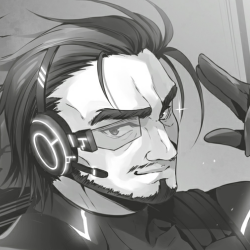Why YSK:
While I’m sure that most Germans reading this post title are thinking to themselves “keine Scheiße”, in other countries it is possible to go your entire life without being exposed to the unabbreviated word. “The Nazis were bad and did inhumane things, here is a list of those atrocities” tends to be the extent of what many people learn or retain during their primary education. The ideology itself and a country’s descent down this path regretfully do not tend to get nearly as much time in the spotlight. This leads many people who are secure in their own morality to assure themselves that there is no way that they or their fellow countrymen would be capable of repeating the same tragedies. The irony is that the more secure you in the infallibility and moral superiority of your country’s nationalists, the more your country is at risk to following in the footsteps of this regime.
Orwell’s inspirations for the Newspeak language can be found in The Principles of Newspeak, an appendix to the book 1984:
Even in the early decades of the twentieth century, telescoped words and phrases had been one of the characteristic features of political language; and it had been noticed that the tendency to use abbreviations of this kind was most marked in totalitarian countries and totalitarian organizations. Examples were such words as Nazi, Gestapo, Comintern, Inprecorr, Agitprop. In the beginning the practice had been adopted as it were instinctively, but in Newspeak it was used with a conscious purpose. It was perceived that in thus abbreviating a name one narrowed and subtly altered its meaning, by cutting out most of the associations that would otherwise cling to it. The words Communist International, for instance, call up a composite picture of universal human brotherhood, red flags, barricades, Karl Marx, and the Paris Commune. The word Comintern, on the other hand, suggests merely a tightly-knit organization and a well-defined body of doctrine. It refers to something almost as easily recognized, and as limited in purpose, as a chair or a table. Comintern is a word that can be uttered almost without taking thought, whereas Communist International is a phrase over which one is obliged to linger at least momentarily. In the same way, the associations called up by a word like Minitrue are fewer and more controllable than those called up by Ministry of Truth. This accounted not only for the habit of abbreviating whenever possible, but also for the almost exaggerated care that was taken to make every word easily pronounceable.
We live in a world where it is possible to never come across the unabbreviated form of “Nazi” unless we happen to be reading a Wikipedia article describing a fictional language used in the book 1984. If you find that concerning, you might want to spend some time researching the transformation of Germany or Italy under fascist leadership. Some of my favorite anecdotes are from They Thought They Were Free, which contains recollections from ordinary German citizens during the Nazi regime. It includes their observations of how their country’s transformation slowly but inevitably crept up on them. Here’s an excerpt:
“You see,” my colleague went on, "one doesn’t see exactly where or how to move. Believe me, this is true. Each act, each occasion, is worse than the last, but only a little worse. You wait for the next and the next. You wait for one great shocking occasion, thinking that others, when such a shock comes, will join with you in resisting somehow. You don’t want to act, or even talk, alone; you don’t want to ‘go out of your way to make trouble.’ Why not?—Well, you are not in the habit of doing it. And it is not just fear, fear of standing alone, that restrains you; it is also genuine uncertainty.
[…]
"And one day, too late, your principles, if you were ever sensible of them, all rush in upon you. The burden of self-deception has grown too heavy, and some minor incident, in my case my little boy, hardly more than a baby, saying ‘Jewish swine,’ collapses it all at once, and you see that everything, everything, has changed and changed completely under your nose. The world you live in—your nation, your people—is not the world you were born in at all. The forms are all there, all untouched, all reassuring, the houses, the shops, the jobs, the mealtimes, the visits, the concerts, the cinema, the holidays. But the spirit, which you never noticed because you made the lifelong mistake of identifying it with the forms, is changed. Now you live in a world of hate and fear, and the people who hate and fear do not even know it themselves; when everyone is transformed, no one is transformed. Now you live in a system which rules without responsibility even to God. The system itself could not have intended this in the beginning, but in order to sustain itself it was compelled to go all the way.


Orwell wasn’t satirizing Nazism so much as Totalitarianism in general. He was equally, if not even more, critical of Stalinism and how Marx’s ideals of a communist utopia has been crushed under the authoritarianism of The Party.
Nineteen Eighty-Four is a cautionary tale about the potential consequences of a society where individuality, freedom, and independent thought are suppressed in favor of a repressive and controlling regime of any kind, not just a right-wing fascist one.